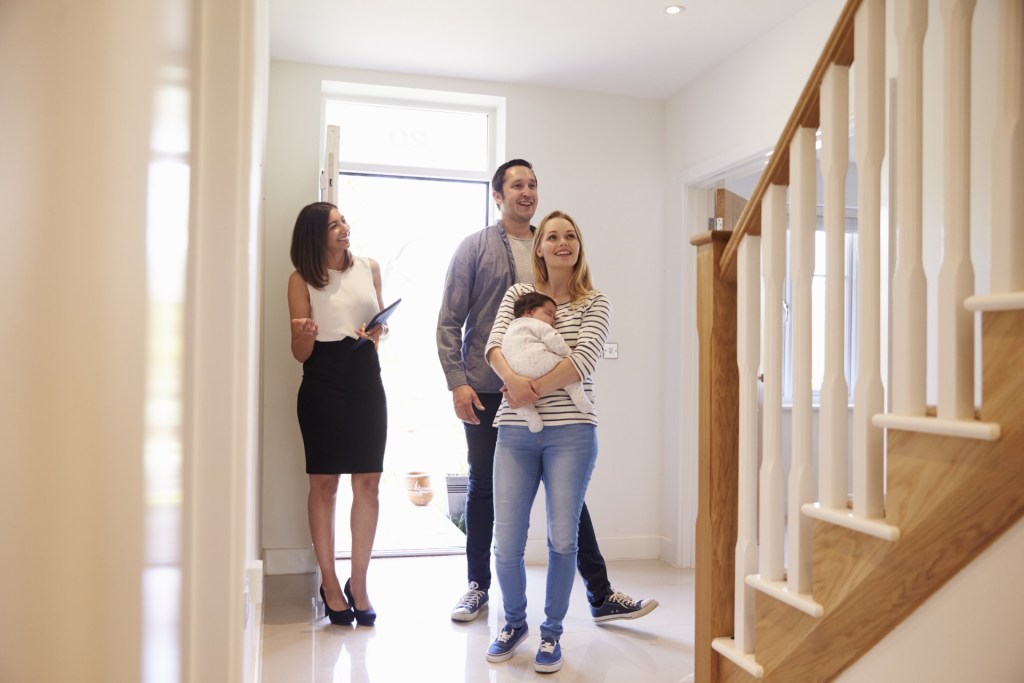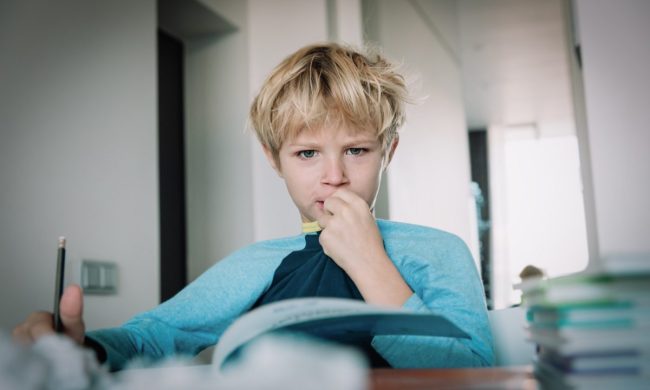Homebuyer families are a special breed of shopper, seeking out kid-friendly features when house-hunting for their possible dream home. Features and attributes can excite young ones, help parents breathe a sigh of relief, or take the house from a good one to an absolute great one. It can provide a space where you and your brood can spend warm summer days splashing around in the backyard pool, and on cool fall evenings, watching movies and building forts in the family room.
Those spaces and features often make the sale feel worthy of every penny, helping parents seal the deal more quickly if they find just what they are looking for. If you are currently on the market for a new home — or maybe even secretly entertaining the idea — consider these fun and safe child-friendly features while you’re searching for and purchasing one.

Splish, splashin’ around
A pool is one of the most sought-after and child-friendly home features that prospective homebuyers seek out when talking with realtors or pouring through homebuying websites. While it requires a good bit of maintenance and upkeep, most shoppers quickly realize that those are small tradeoffs when compared to the joy, happiness, and memories that are formed while swimming and splashing in the family’s backyard pool.
Not only is a pool a wonderful way to keep cool during the hot summer months, it also usually involves some sort of outdoor seating such a deck or patio, adding additional benefits of entertainment such as hosting parties or get-togethers.
Free to run
It’s no secret that kiddos sometimes need what can only be described as endless entertainment. In order to combat the whines and groans of boredom, some parents, when searching for their new prospective home, will do a quick search of the property and any nearby landmarks or outdoor facilities to find the closest children’s park. Having a convenient and exciting chip in your back pocket for those days when your littles simply need to get out and expend their built-up energy can go a long way — especially for those long, hot summer days that can seem to drag on for hours.

Building blocks and bonds
Finished basements or family rooms are fantastic selling/buying points for parents with small kids in the mix. Not only are these great gathering areas for everyone to relax and spend time together, it is also a way to utilize more living space in the home — especially in smaller-square-footage homes such as Cape Cods. Finishing a basement can open up the options of renovating your kitchen, putting in a more formal dining area, or adding an additional bedroom, office space, or kids’ play area.
Safe interiors for all
While it may seem like a common and basic idea, not all homes have had paint-based testing done. Finding a home with an open-book style of listing that shows the results of lead paint testing and any remediation done to fix any issues can look good to a nervous homebuyer with little ones in tow. All parents want the best for their kids, and even if you don’t have an infant who doesn’t know what’s safe to but in their mouths or not, accidents can happen. As parents, you and your kids want to feel safe in your home each and every day.
Sighing a breath of relief, knowing the paint on your prospective home’s walls is free of any dangerous, heavy metals is something many parents can’t put a price tag on.

While these very few and basic kid-friendly features are awesome additions to any newly purchased home, they are not all-encompassing. A few other honorable mentions for shoppers could be:
- Acreage: Though not always feasible due to geography and topography, if you as a homebuyer have the option to purchase a home with more space, it could be the best choice you could have made, especially if your family loves the outdoors. Kids who love to be in the fresh air will be over the moon at the chance to run and play on a large piece of property, complete with new things to see and discover.
- Treehouse/playhouse: Most kiddos enjoy playtime and adventure, and what better spot to do that in than their very own kid-sized playhouse? Whether it’s in a tree or on the ground, a space where it’s all-kid all the time, your little one may never want to leave.
- Fence: If your family contains children, then you likely know the benefits of having an established fence in place when you hit the steps to your backyard. Not only do they keep your kiddos contained, but they also provide space and privacy from strangers or neighborhood animals.
For homebuyers — and sellers, as well — finding the essential features that your family is looking for begins at home. By learning what the members of your household are dreaming of when they picture their next home, families have a clear picture of their future.
For sellers, knowing your demographic and finding these key features in your home and highlighting them within the listing helps draw in buyers, which in the end makes you the most money as fast as possible.
Before hitting the home-listing sites or finding a realtor, start asking the questions to your family, coming up with a plan together as one, and going out to find the most perfect home possible based on everyone’s overall desires, needs, and safety concerns. Besides, kid-friendly features aren’t that hard to find if you know what you’re looking for.



